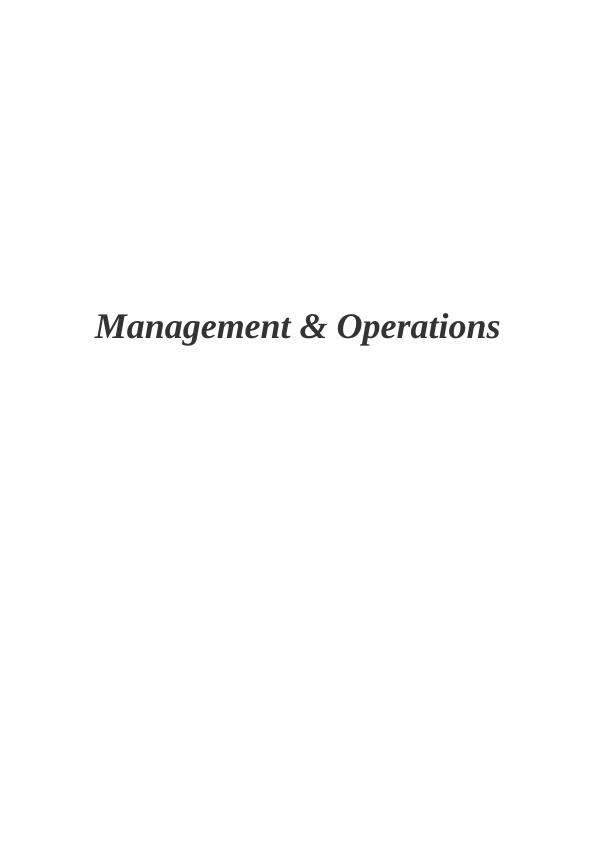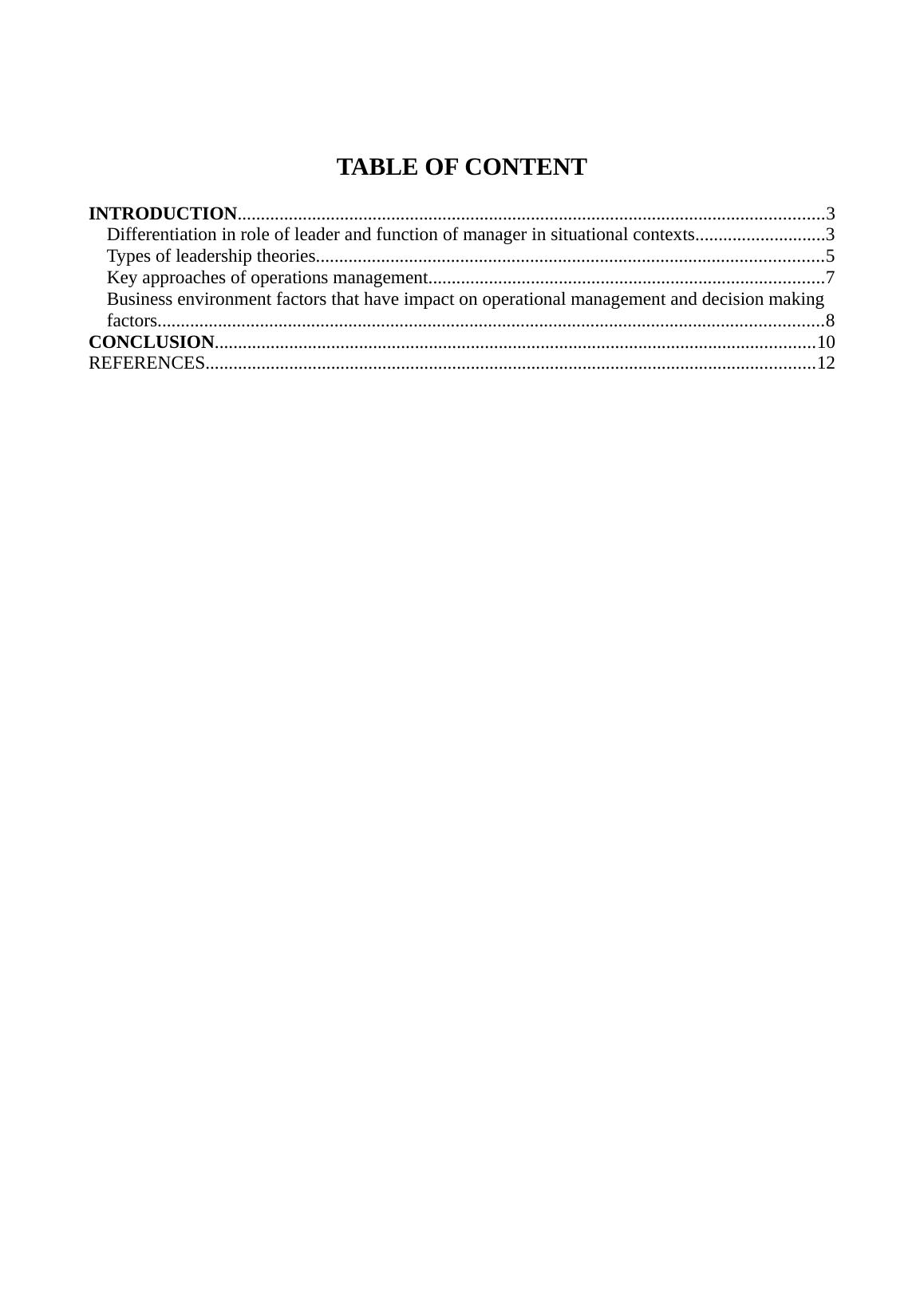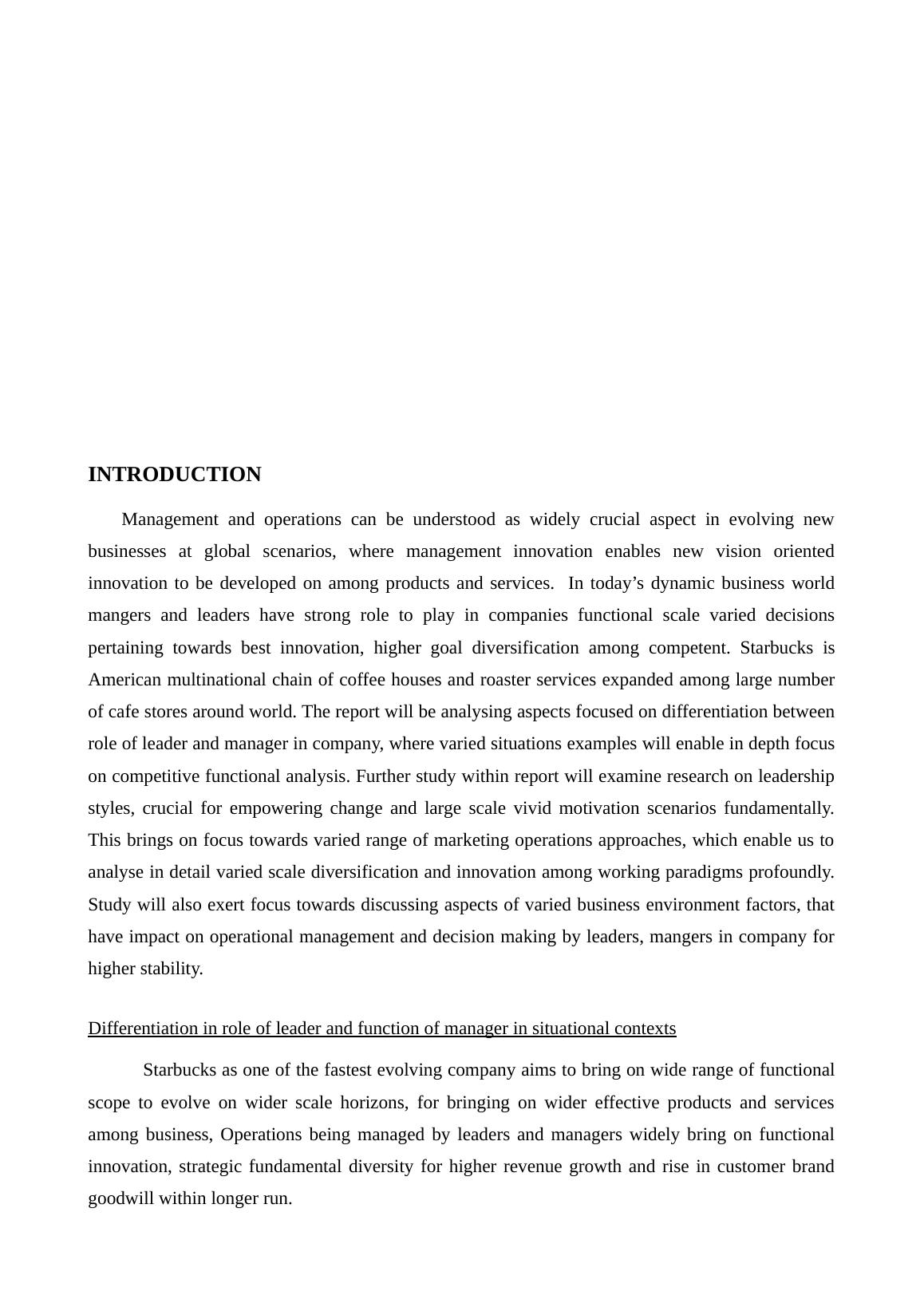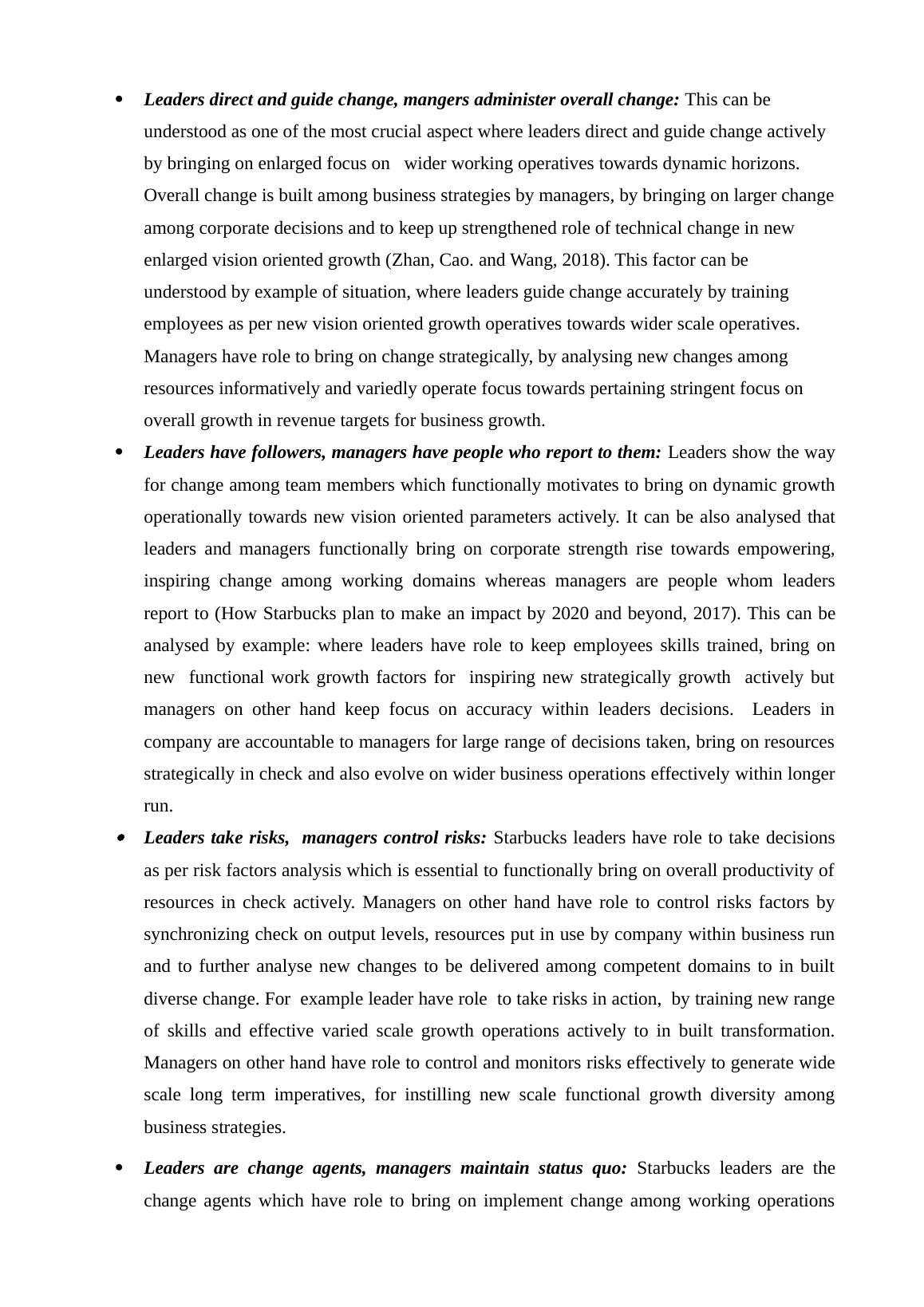Differentiation in Role of Leader and Function of Manager in Situational Contexts
Apply the role of a leader and the function of a manager in given contexts, demonstrate an appreciation of the role leaders and managers play in the operations function of an organisation, demonstrate an understanding of the relationship between leadership and management in a contemporary business environment
12 Pages3899 Words327 Views
Added on 2022-12-15
About This Document
This article discusses the differentiation between the role of a leader and the function of a manager in situational contexts. It explores the types of leadership theories and key approaches of operations management. It also examines the business environment factors that impact operational management and decision making.
Differentiation in Role of Leader and Function of Manager in Situational Contexts
Apply the role of a leader and the function of a manager in given contexts, demonstrate an appreciation of the role leaders and managers play in the operations function of an organisation, demonstrate an understanding of the relationship between leadership and management in a contemporary business environment
Added on 2022-12-15
ShareRelated Documents
End of preview
Want to access all the pages? Upload your documents or become a member.
Hospitality Marketing: Roles, Responsibilities, and Comparison
|11
|2955
|37
Change Management: Implementing and Sustaining Change in Tesco
|8
|1265
|87
Relationships of organization structure and culture
|10
|2439
|26
Entrepreneurship and Small Business Management: Types, Impact, and Traits
|18
|4925
|68
Comparison of Roles and Characteristics of Leaders and Managers
|4
|1200
|90
Competitive Strategy
|10
|2586
|88




